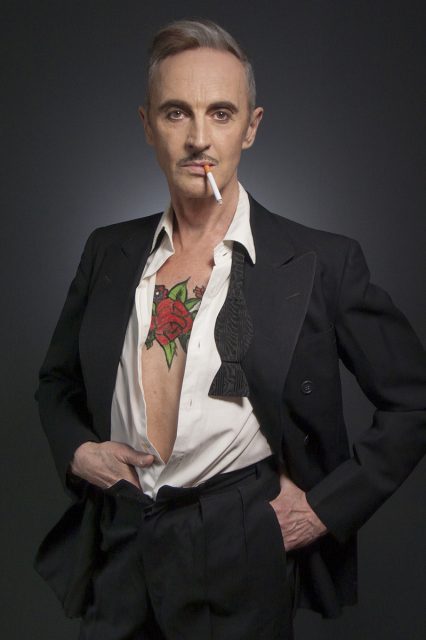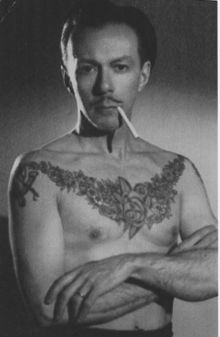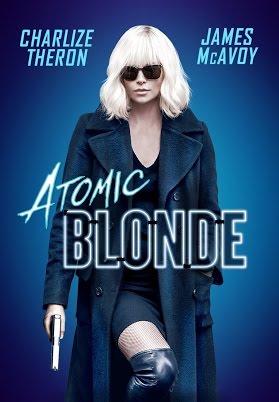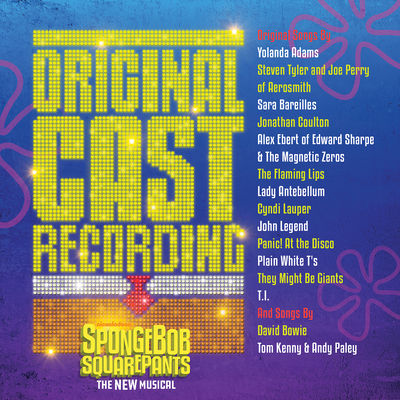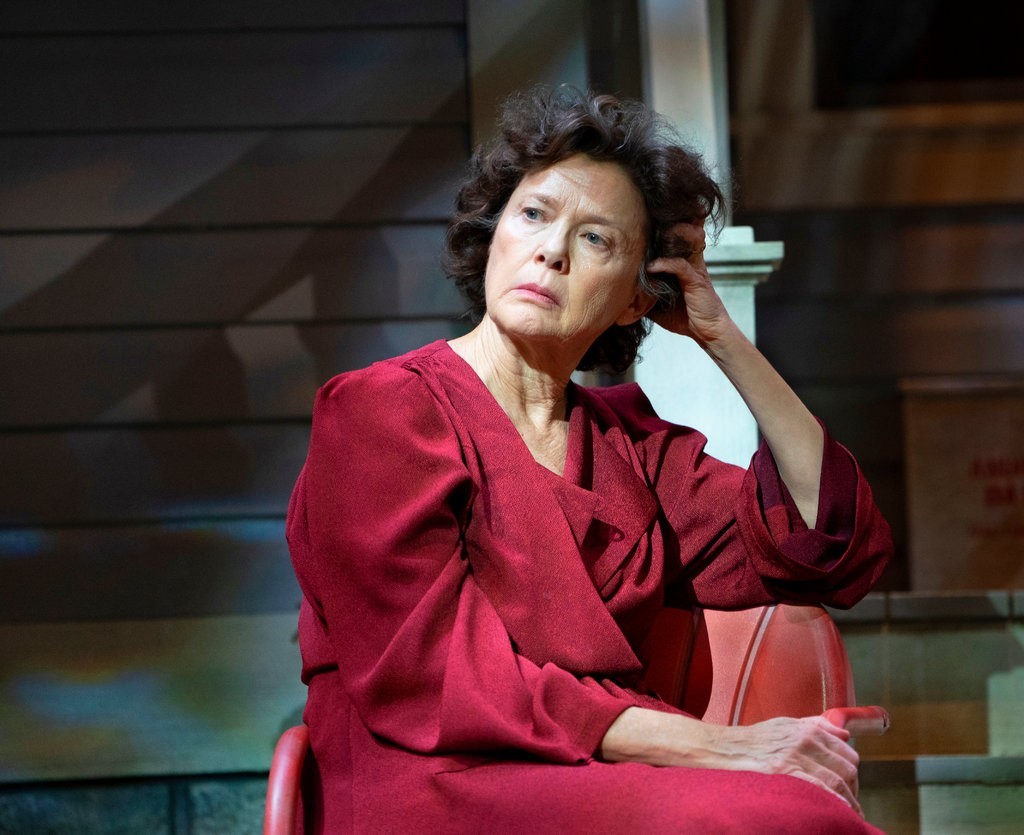 Annette Bening
Annette Bening
HENRY EDWARDS - New York - April 29, 2018
All My Sons” is the second of Arthur Miller’s 17 plays and the likelihood exists you have never seen it or know much about it.
Miller’s first Main Stem effort was the 1944 flop, “The Man Who Had All the Luck”; his sophomore outing, “All My Sons,” was his big break.
The 1947 post-World War II drama was a critical and popular success and the recipient of the New York Drama Critics Circle Award and first Tony award for Best Author.
Time (72 years to be precise) has transformed the play into an American classic.
There is no better proof than Roundabout Theatre Company’s shattering production, impeccably directed by Jack O’Brien, at the American Airlines Theatre.
Miller, as we all know, was an uncompromising moralist. He detested the hollow promises of the American Dream, especially when making money and achieving success comes at the expense of others. Harboring a fierce belief in man's responsibility to his fellow man, he never doubted that self-destruction follows on the heels of the betrayal of that responsibility.
His unshakable convictions permeate a play that deals with the wrenching consequences of a fateful and morally irresponsible decision that shatters the fragile façade of the Midwestern Keller family, patriarch Joe Keller (Tony-winner Tracey Letts); wife Katie (screen legend Annette Bening); and son Chris (Benjamin Walker).
Bening, it is a delight to report, returns to Broadway 32 years after making her Tony-nominated Broadway debut in 1987’s “Coastal Disturbances.”
Over a remarkable three-decade screen career, the actress has delivered penetrating and truthful performances in 30 movies, including four films for which she was nominated for an Academy Award: “The Grifters,” “American Beauty,” “Being Julia” and “The Kids Are All Right.”
Jeff Sugg’s compelling black and white video of a torrential rainstorm intercut with images of planes falling out of the sky launches the impassioned family drama.
Despite the unsettling nature of the images, the curtain rises on an incredibly cheering sight. It’s late summer in 1947, we’re in a Middle American town within driving distance of Columbus, Ohio, and designer Douglas W. Schmidt’s visualization of the Keller family’s lusher-than-lush back yard in late summer of 1947 is ravishing.
Paying tribute to Aristotle’s “Poetics” (a play must present a single action occurring in a single place within the course of a day), Miller sets “All My Sons” in one location on a single day.
This particular day turns out to be a long day’s journey into night, starting early on a sunny Sunday morning and stretching long into the darkness of the next day.
Patriarch Joe Keller is a self-made man who worked his way up from worker to boss/owner of a factory that made airplane parts for the military during World War II. He is a decent guy, family man, hard worker. All told, he is the perfect example of the average American.
But Joe refuses to deal with certain aspects of his life in a head-on manner. His ability to “ignore what I gotta ignore” enables him, almost but not entirely, to exist in an alternate reality in which nothing is of any interest or consequence unless it affects his ability to prosper and provide for his family.
Joe’s dutiful son Chris, who is in his early thirties, occupies a medium-level executive position at the family business and will likely soon take on a top-level position.
Both Chris and his younger brother Larry served in the war.
Chris was wounded in action and witnessed the deaths of more than 100 troops under his command (leaving him with an aching dose of survivor’s guilt).
Larry, an Air Force pilot, never returned from a mission in the Pacific, and is technically listed as missing in action.
Joe and Chris have long come to terms with the inevitable, but Kate Keller desperately clings to the belief that her son still alive and will simply walk through the door one day. During three-and-a-half years of compulsive waiting, she has experienced two nervous breakdowns.
And that’s not all. The Kellers are awash in hidden currents of anguish and misgiving.
Once upon a time not that long ago, Joe and his former next-door neighbor, Steve Deever, were business partners; Steve’s daughter Ann (Francesca Carpanini) and Larry were engaged to be married; and Chris and Ann’s brother George (Hampton Fluker) were great pals.
The company made airplane parts, some of which were found to be defective. Yet Joe, for whom survival is a primary necessity, made the appalling decision to authorize the shipment of the cracked cylinder heads to the U.S. Army. Subsequently, 21 pilots died tragically when their fighter jets crashed due to the flawed components.
The partners were arrested, tried and were serving time when Joe claimed he was sick on the day of the deliveries, and, therefore, could not authorize the shipment. He was exonerated on appeal – Joe’s genial nature probably had a lot to do with his convincing the appeals court of his innocence – while Steve remained in prison where he still is.
Understandably, a dismayed Ann and George turned against their war-criminal father and wrote him out of their lives.
The great horror that hangs over the Keller family is the suspicion that the truth of Joe’s heinous behavior is going to surface.
And it seems almost predestined that Keller’s culpability is going to catch up with him.
Chris has cultivated a romance with Ann, who has been living in New York, and has extended an invitation to her to visit, and she is on her way. When she arrives, Chris plans to propose.
Kate makes sure to let Chris know she opposes his relationship with “Larry’s girl.”
Ann senses that the entire Keller family is trapped in a state of denial. But she has come to terms with Larry’s death, allowing her to move on, and she is determined to encourage Chris to do the same.
It is 1947 so it should come as no surprise that Ann is told by three different people—Kate, George, and Chris—how and what she should feel.
Carpanini captures the role of the determined neighbor's daughter with candor, youthfulness and passion.
Later, Ann’s brother George turns up after visiting their father in jail for the first time. He has also been injured in the war, a wound that earned him a medal. He carries another wound, however, that is deeper and more painful: a fractured family, and the guilt of turning away from his father when he should have done the opposite.
The hurt is made all the more poignant when he comes to suspect that those he thought of as friends and family have betrayed them. He wants to amend his faults, and save Ann from the clutches of the Keller legacy.
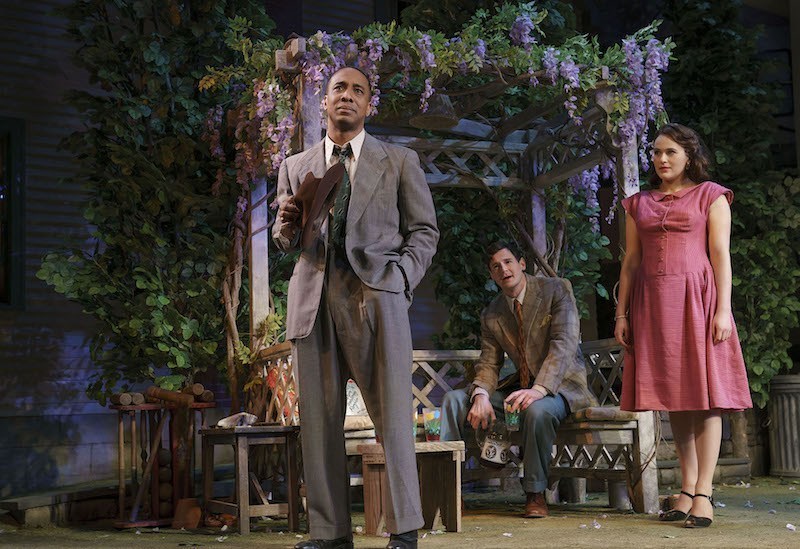 Hampton Fluker, Benjamin Walker, Francesca Carpanini
Hampton Fluker, Benjamin Walker, Francesca Carpanini
Utilizing his training as a lawyer, he presses Joe until the atmosphere reaches a boiling point. Joe appears to listen, but he’s too self-involved really to really care what anyone else is up to. He doesn’t mean to be selfish, but his guilt and cover ups leave him entirely preoccupied.
Fluker delivers an enormously compelling performance as he oscillates between rage and residual affection for the Keller family.
After he departs, the heat really turns up and Letts, Bening and Walker ratchet up the play to its heart wrenching conclusion.
“Your brother’s alive, darling, because if he’s dead your father killed him,” Kate tells Chris. “Do you understand me now? As long as you live, that boy is alive. God does not let a son be killed by his father. Now you see don’t you? Now you see.”
In that moment, it becomes clear she has always intuitively known about Joe’s guilt and used her obsession with Larry’s death as a way of protecting her guilty husband.
Convinced of the truth, Chris engages in a brutal showdown with his father, forcing him to see the error of his refusal to think only of himself and his family and accept responsibility for anyone else.
Thinking of the lost flyers, Joe wails, "They were all my sons."
Sadly, as is often the case, it is too little, too late.
Chris next tells Ann and Kate that he is going away because he can no longer bear to look at his father, but can also not take on the responsibility of sending him to prison as he deserves.
Ann produces a letter that Larry wrote her the day he died. Chris reads the letter aloud: it describes how, upon learning about what his father did, Larry could not bear to live anymore. He told Ann that he knew he would be reported missing and that she should not wait for him.
Joe’s suicide brings to a tragic conclusion this story of complicity and misguided family values.
At a time of unrestrained corruption and fakery when lies masquerade as truth, Miller’s moral rigor is sublimely reassuring.
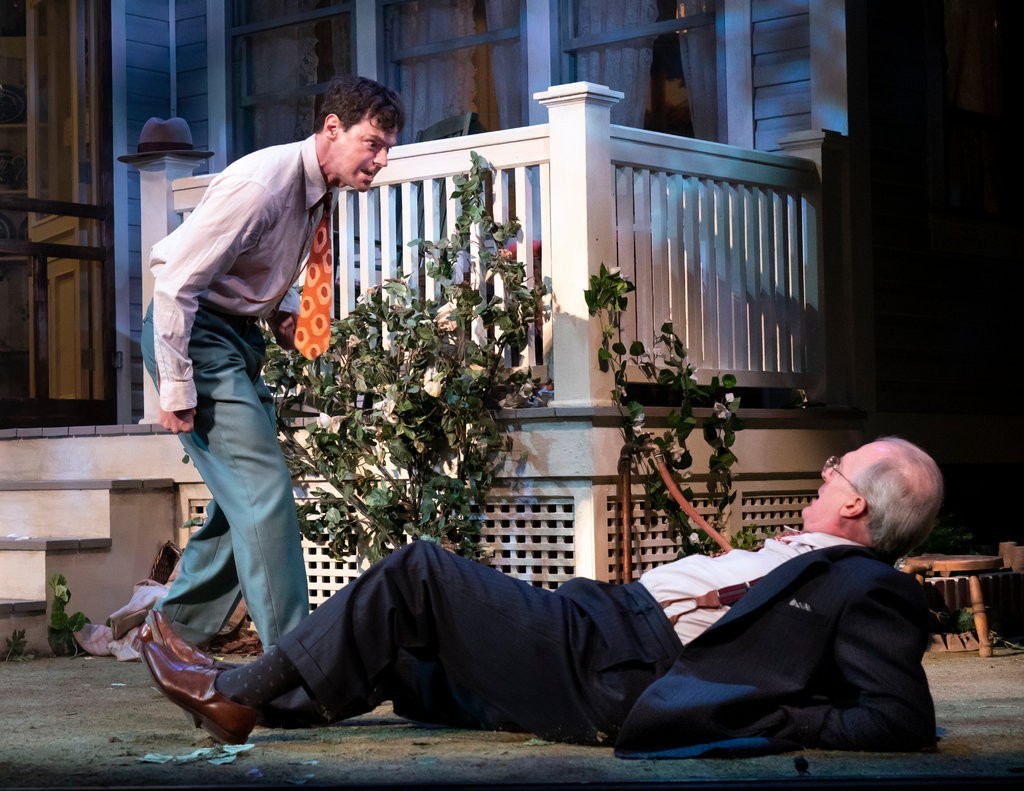 Benjamin Walker and Tracey Letts
Benjamin Walker and Tracey Letts
All My Sons has been extended through June 23. For TICKETS AND INFORMATION: Roundabout Theatre Company
 Wednesday, October 9, 2019 at 2:12PM
Wednesday, October 9, 2019 at 2:12PM 